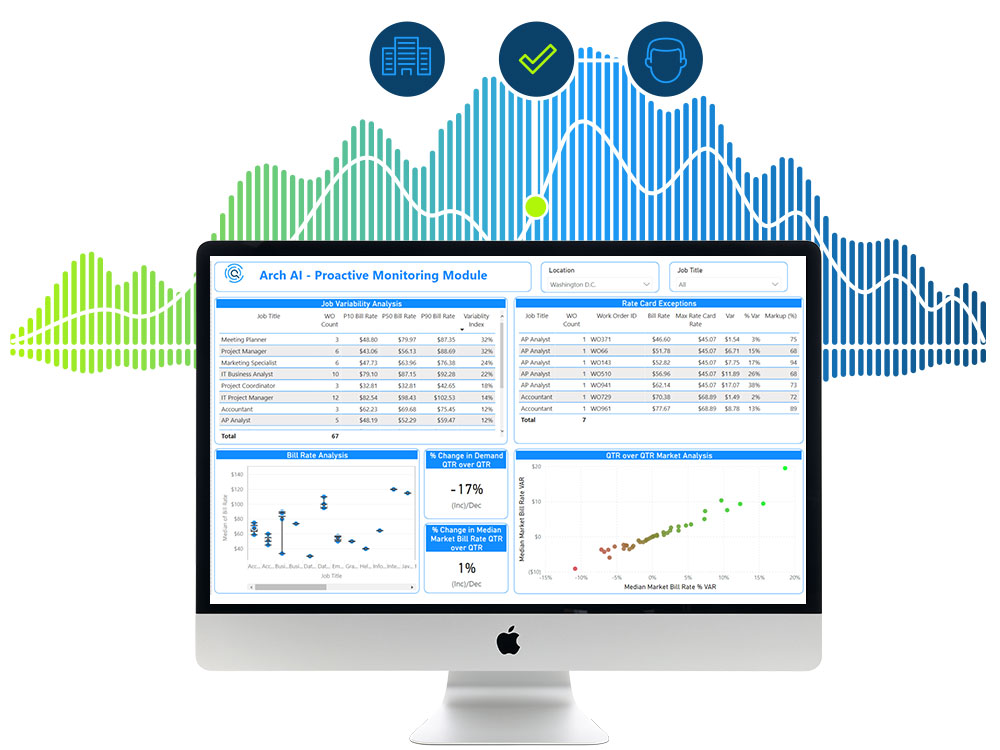
Specialist providers of contingent workforce rate benchmarking/analytics services have emerged over the past several years. Based on our market scan, we have identified three such standalone, vendor-neutral providers — PeopleTicker, Brightfield Talent Data Exchange (TDX) and HCM Strategies. All three will be profiled at a high level in this Spend Matters PRO brief. A secondary goal of this brief is to begin to explore a broader, systematic research approach to understanding and comparing different rate benchmarking and analytics capabilities.
The estimation, or benchmarking, of contingent workforce “market” labor rates by job category is certainly not new, and rate benchmarking is widely used — or made available as a service — in practically every part of the contingent workforce supply chain (e.g., staffing suppliers, MSPs, VMS solutions, et al). But rate benchmarking data sources and methodologies have remained somewhat in the shadows for years.
Rate benchmarking produced within — and as just a part of — those contingent workforce supply chain providers has not made it easy to assess what lies behind the many different benchmarking approaches that are in use today. However, the emergence of third-party, vendor-neutral rate benchmarking and analytics service/solution specialists may help in doing so.
To compound the problem, there is currently no established framework that would allow for a comparison of different providers’ rate benchmarking approaches and allied capabilities (e.g., self-service, scenario-building and other capabilities). And, as “advanced analytics” (based on techniques such as data/text mining, machine learning, pattern matching, semantic analysis, simulations, etc.) provide a new foundation for rate benchmarking, the differentiation of approaches becomes more important over time.
Now, let’s take a look at PeopleTicker, Brightfield Talent Data Exchange (TDX) and HCM Strategies and then make some high-level observations about the group.